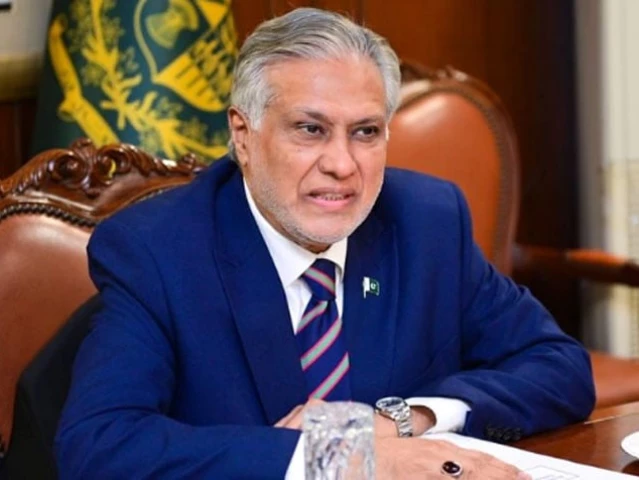Islamabad:
Pakistan raised concerns concerning the violations of India from the Industry Water Treaty (IWT) at a meeting between the Deputy Prime Minister and the Minister of Foreign Affairs, Senator Ishaq Dar and the Secretary General of the United Nations, Antonio Guterres, at the UN headquarters on Monday.
DAR stressed that India’s actions were a serious threat to regional stability and urged the UN to play its role in joining international agreements. He also underlined other critical national and regional problems, including the Jammu and cashmere dispute and “terrorism sponsored from the outside” in Pakistan.
The Minister of Foreign Affairs has reaffirmed the commitment of Pakistan “unshakable and resolved” towards multilateralism and the central role of the UN in conflict resolution, sustainable development and fundamental human rights. The UN chief appreciated the active presence and Pakistan initiatives in the Security Council, where Islamabad holds the presidency this month.
Dar said Pakistan has been fully attached to the Charter of the United Nations, in particular the promotion of peace by dialogue and diplomacy. He quoted the high -level debate on multilateralism and the peaceful settlement of disputes, as well as the meeting on the cooperation of the OIC held under the presidency of Pakistan, as a reflection of Islamabad’s commitment to global peace efforts.
Reiterating the position of Pakistan in the Middle East, he called for an immediate cease-fire in Gaza, a firm opposition to the annexation plans of Israel in the West Bank and unwavering support in the Palestinian State.
The two parties also discussed concessional funding of developing countries, debt relief and liquidity solutions for the world South. DAR said that the Secretary -General’s “UN80” initiative offered an important opportunity to strengthen the three UN – peace and security, sustainable development and human rights pillars.
Welcome to the appointment of a special United Nations envoy to Islamophobia, the Minister of Foreign Affairs DAR expressed the will of Pakistan to support global efforts to combat religious intolerance.
The meeting, according to diplomatic officials, reflected Pakistan’s candidacy to assert his role as active actor in multilateral diplomacy under his current presidency of the United Nations Security Council.
Meanwhile, DAR said that Pakistan was aimed at using 60% renewable energy by 2030 during its speech to the general debate of the ministerial segment of the United Nations High Level Political Forum (HLPF) in New York, according to a press release from Foreign Office (FO).
According to the FO, DAR reaffirmed Pakistan’s commitment to the 2030 Agenda for Sustainable Development and described key political measures stimulating growth, climate resilience and economic reform in its speech.
“The effects of composition of pandemic, food, fuel and financial crises, as well as the intensification of climatic impacts, have reversed the development gains harshly won and deepened inequalities,” said FM in his speech.
“Despite these challenges, Pakistan remains fully determined to carry out the 2030 agenda. Our national development strategies, such as Uraan Pakistan, are aligned with the SDGs.”
The FM has also highlighted initiatives such as the Benazir income support program and “Indus” and “Pakistan recharge” initiatives for climate adaptation and renewable energies, the FO declaration indicates.
DAR “also” highlighted the role of the Special Investment Facilitation Council (SIFC) in the alignment of foreign direct investment with Pakistan development priorities, in particular in the essential sectors for sustainable growth “.
“Although national efforts are essential, they cannot succeed in isolation. As the secretary general rightly stressed, a deep reform of international financial architecture is essential for the implementation of SDGs,” continued the FM.
“Development countries need access to the scale of concessional resources and based on subsidies, to relieve significant debt and climate finance to fill the lake of financing of SDGs.”




